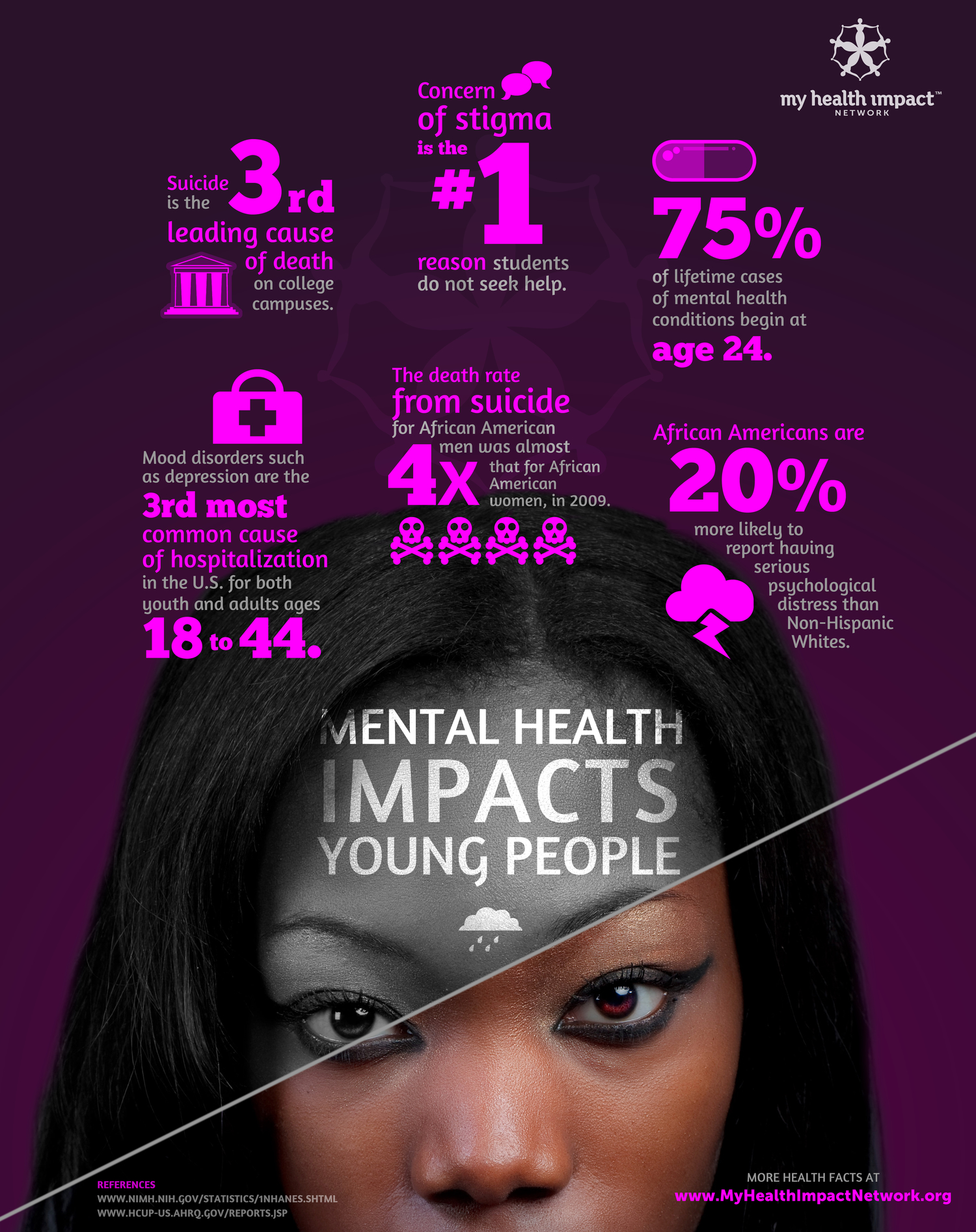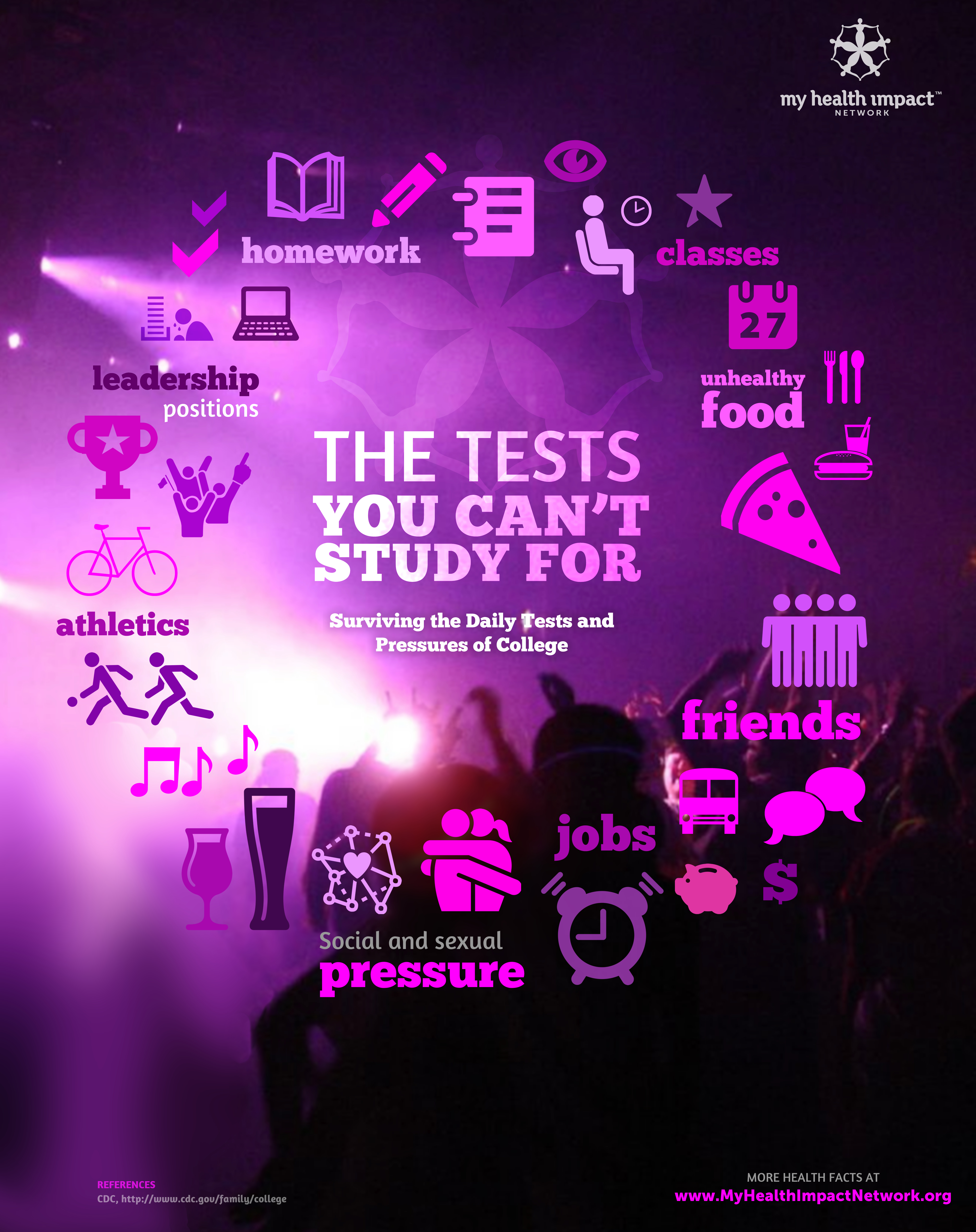Part of doing research is asking the “right” questions and/or developing hypotheses. In our recent study of mental health and college students, we used what is considered “big data”/”mining” techniques. While these methods are central to how we analyzed data, our results are much more important – as they focus on mental health and young adults pursing college degrees. College years are thought to be care free, stress free, parent free with time for self discovery.
As the stressors associated with young adult life increase, tensions (racial, gender, disabilities and others) on college campuses only add to these experiences. The infographic above is from the @myHealthImpact project which uncovered for our research team that students are vulnerable, but need safe spaces to address mental health concerns. Students can study for the computer science, math, or chemistry exam, but there are life’s lessons that are learned through experiences. My students called these the “Tests You Cannot Study For”. These show some of the many balls that students juggle. It is the juggle that also increase the stressors.
Seeking and getting help should be stigma free, but it often chokes many from doing so. Although colleges and universities are increasing mental health services in light of demand, these services are often insufficient. Cultural relevant and responsive services and staff are also critical to meeting the needs of college students. Staff and service availability (or the lack thereof) can turn many college students away – leaving them to opt out of acting on the help needed. These issues are real for college students. Reasons to acknowledge, address and act on mental health are provided in the infographic below.

With today’s tech-savvy students, technology and apps are seen as ways to help with address mental health. Apps are widely available to track health data and behavior change associated with depression, anxiety, substance abuse and other health conditions. Yet, tech is not the magic bullet especially with the gaps in use and measurement which is one reason why college services and tech must work in a coordinated manner.
College can be a fun time with positive life changes experiences, but it can be challenging for those studying for that degree(s). Mental, physical and spiritual care are important in preparing college students for the tests that they can and cannot study for. In other words, take care of the whole person!


